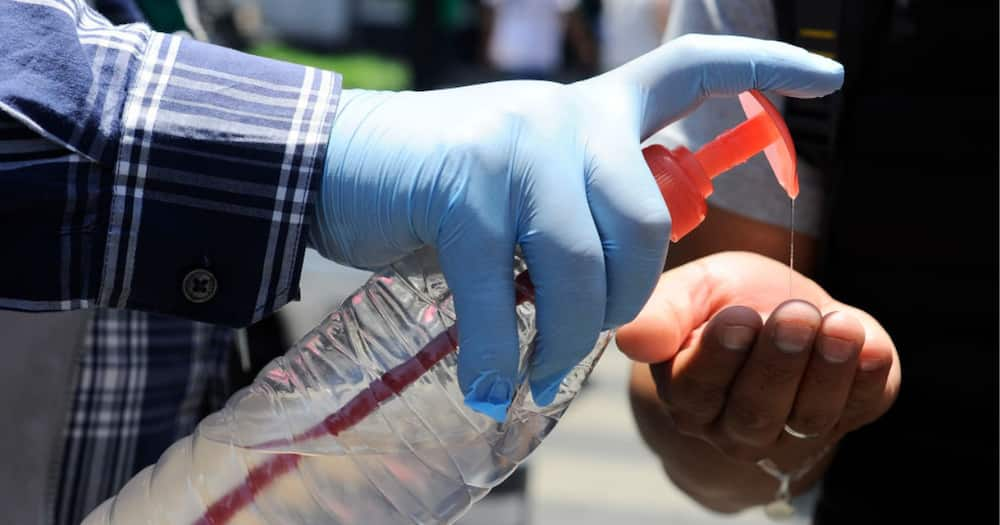Study Finds Sanitisers Sold in Parts of Tshwane 'Substandard', SA Seething
- A scientist has found that sanitisers that have been sold in parts of Tshwane are substandard
- A sample of 50 readily available sanitisers was tested for compliance with international standards
- Locals online have since expressed anger and frustration over the apparent lack of safety concerns in the city
PAY ATTENTION: Follow Briefly News on Twitter and never miss the hottest topics! Find us at @brieflyza!
TSHWANE - Parts of Tshwane have come under the microscope after a scientist from the University of Pretoria (UP) found the majority of hand sanitisers being sold to not contain the recommended 70 per cent alcohol volume.
The study comes as the country's capital battles an outbreak of the Omicron variant. Dr Abdullahi Yusuf, a senior lecturer in Entomology, noted that the commercial, off-the-shelf hand sanitisers stray from local and international standards as they don't contain the recommended alcohol content and are mostly incorrectly labelled.

Source: Getty Images
News24 reported that the solutions, which involved testing a range of readily available sanitisers for compliance with international standards, did not contain alcohol compositions for ethanol, among others, per a recommendation by the World Health Organization (WHO).
Yusuf conceded that the outcome from the study was serious as the country stares down the barrel of a fourth wave of coronavirus infections during the festive season.
PAY ATTENTION: Never miss breaking news – join Briefly News' Telegram channel!
"The results are concerning, especially as we head into the fourth wave and rely on [the use of sanitiers] for limiting the spread of the virus. However, there are several substandard hand sanitisers in the market, mainly motivated by profit.
"As a case in point, because ethanol is an expensive solution, cutting corners on 10 per cent can translate to more profit," explained Yusuf, who analysed 50 products of different origins using a scientific process called gas chromatography.

Read also
Vaccine mandate causes South Africans to get the jab, Gauteng residents fear Omicron pandemic
Part of a bigger problem
According to The Citizen, substandard sanitisers are not limited to Gauteng but rather is a countrywide phenomenon. Yusuf warned that compromised products pose a health risk to the general population and that compliance was key to curbing the spread of the virus.
"The presence of products on the market that aren't alcohol-based or aren't appropriately labelled poses a significant risk to consumers. As such, using substandard products exposes the population to the virus," he said.
Naturally, netizens were not impressed at the revelation of the lax and disruptive market that exists out there. Many social media users were critical of the general management of the Covid-19 pandemic in the country.
Locals have their say
Briefly News camped inside the comments to bring readers the loudest reactions to the post below.
@Ceca Horvat wrote:
"Of course they are. All of them are hazards for peoples health."
@Simo Socikwa said:
"See? Other countries hear of the things y'all do, and it puts a question mark on the whole anti-Covid program."
@Brenden Mmamaila added:
"Money over life. Even leaders of the country do the same."
SA's Covid-19 stats skewed following 17k dumped tests
Elsewhere, Briefly News previously reported that health officials in South Africa included 17 718 historic Covid-19 cases on 22 November, which incorrectly skewed the data and statistics for the day as it gave the impression of a spike in cases.
Between 21 and 22 November, there were actually 868 new cases and not the 18 586 new cases that were reported. These inflated numbers caused concern, not only to South Africans but the global community at large.
According to News24, they have analysed data from the Department of Health to investigate the true Covid-19 statistics. The spike on 23 November, caused by the previous day's incorrect reporting, added to the fears western countries felt when Omicron was discovered.
Source: Briefly News


